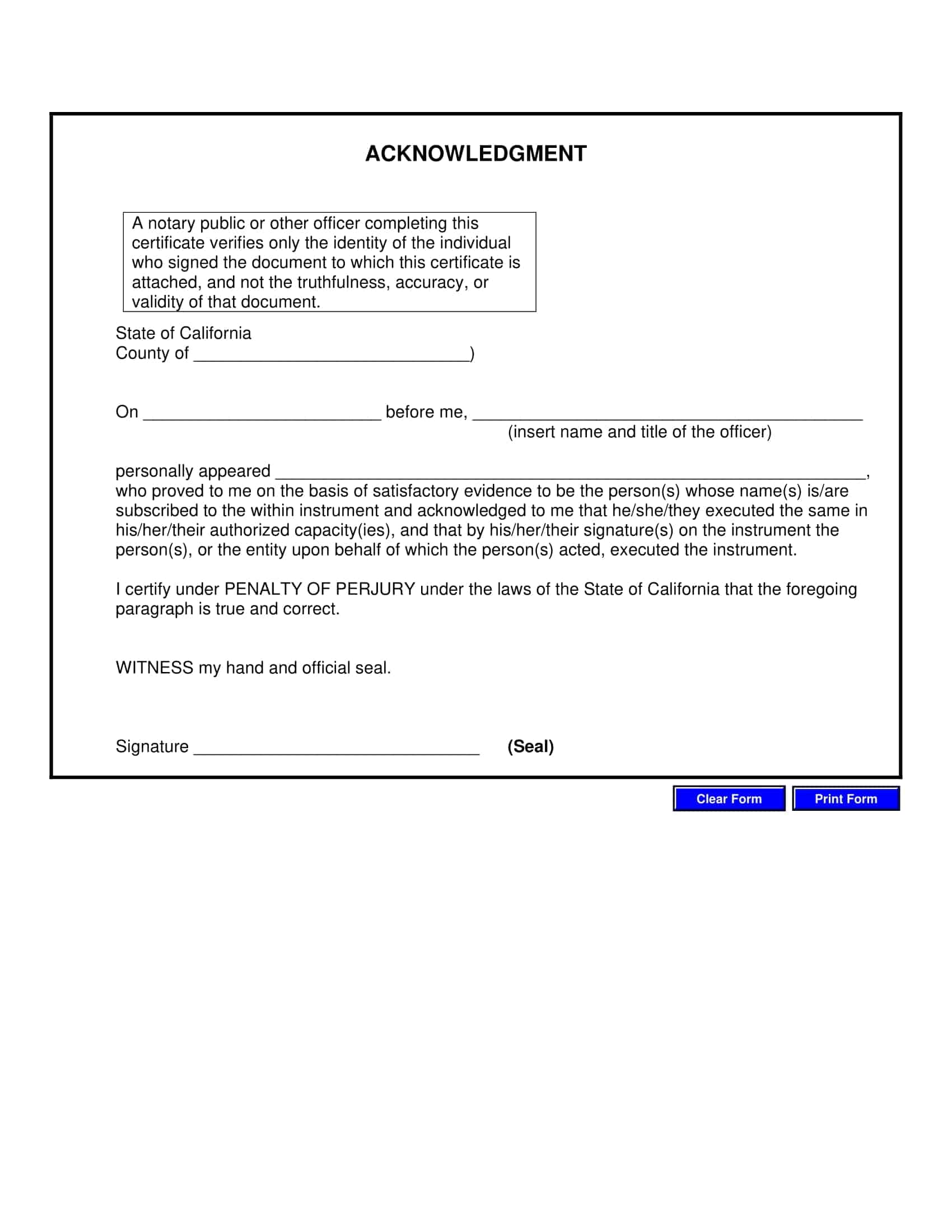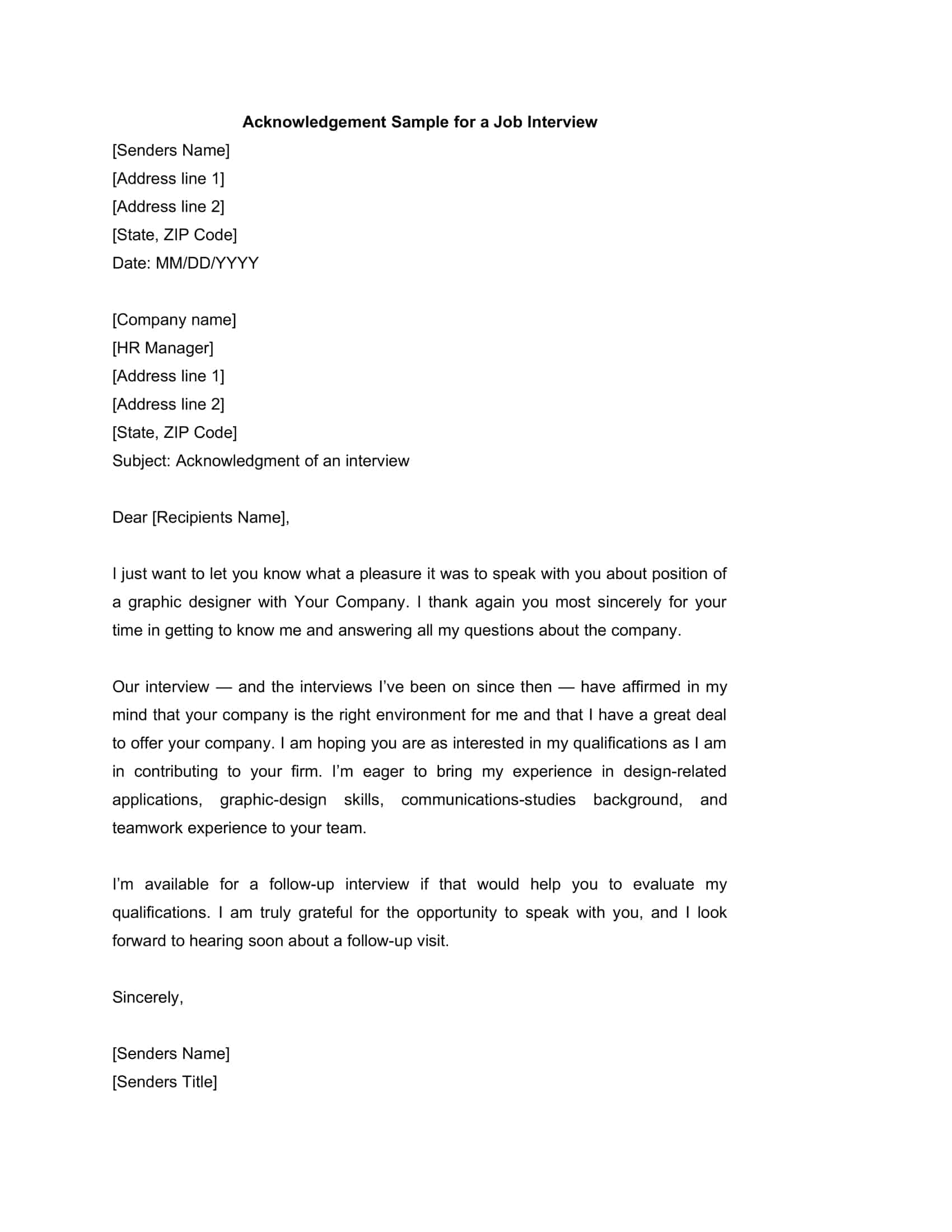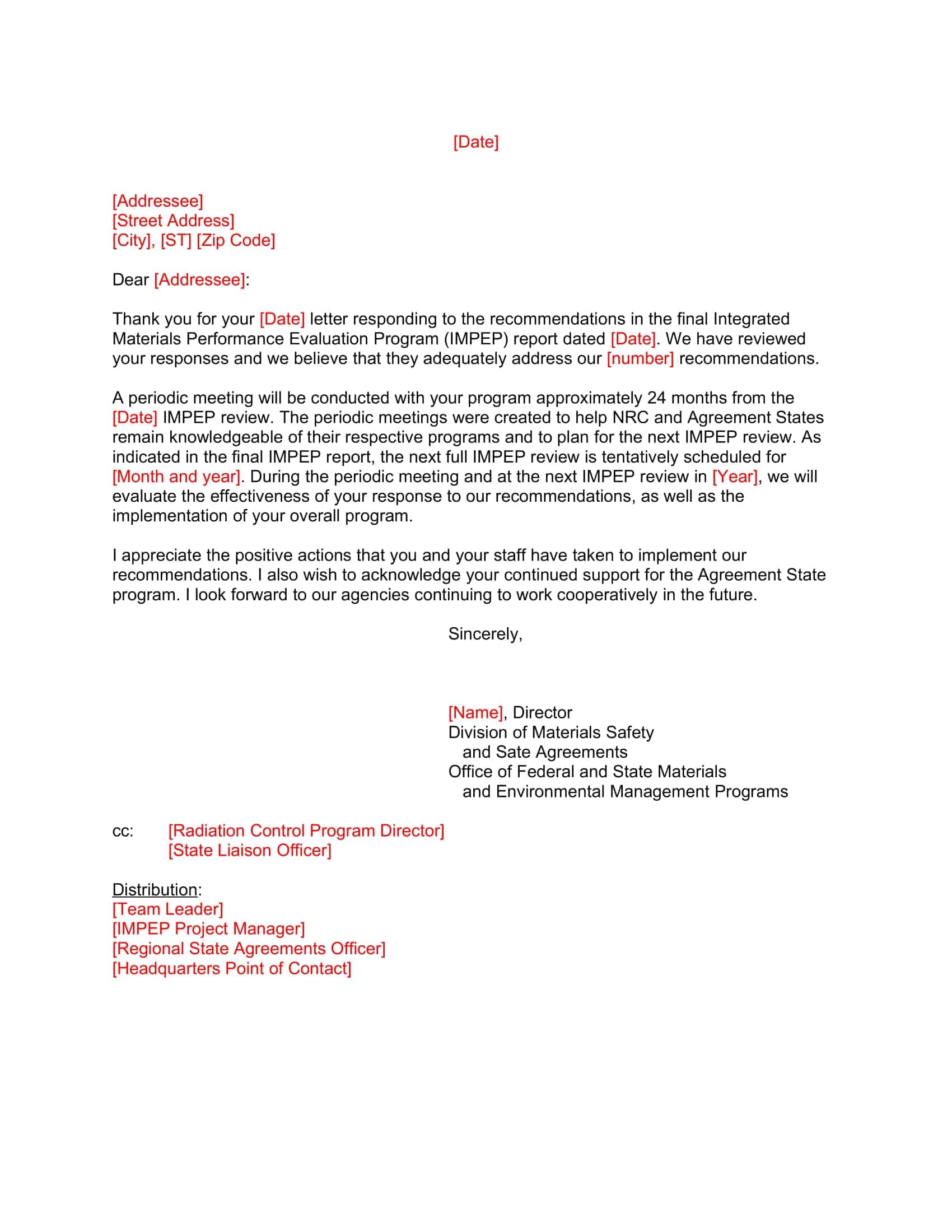At certain times in a person’s life, it becomes necessary to execute a notary acknowledgement for legal purposes. Often accompanying an affidavit, which serves as evidence in a court case, the notary acknowledgement plays a crucial role in validating the authenticity of legal documents. There are two types of notarizations – a notary statement or acknowledgement, and a jurat.
Understanding the difference between these two types of notarizations is essential to ensure that the proper document is used for any given legal situation. In this article, we will delve deeper into the nuances of these legal documents, helping readers understand the purposes and importance of notary acknowledgements and jurats.
Table of Contents
Notary Acknowledgement Templates
Streamline the notarization process with our professional and customizable Notary Acknowledgement Templates. These free, printable templates are designed to simplify the acknowledgement of important documents, ensuring their legal validity. Whether you need to acknowledge signatures, verify identities, or authenticate contracts, our templates provide a clear and concise format for notary acknowledgements. Enhance the efficiency and accuracy of your notarial services with our user-friendly templates. Download, customize, and print these templates to establish the authenticity and reliability of your notarized documents.
What is a notary acknowledgment?

A notary acknowledgment is a legal document that serves as evidence of a person’s signature on a particular legal document. When a person signs a legal document, such as a contract or deed, a notary public may be required to verify the authenticity of the signature. A notary acknowledgment is the document that a notary public completes to verify that the signer of the document is indeed who they claim to be, that they signed the document willingly and freely, and that they understood the implications of the document they were signing.
In other words, the notary acknowledgment serves as a validation of the authenticity of the signature and the identity of the signer. Notary acknowledgments are commonly used in various legal situations, such as real estate transactions, contracts, and legal disputes.
The difference between a Notary acknowledgement and a Jurat
A notary acknowledgment and a jurat are two different types of notarial acts, each serving a different purpose. While a notary acknowledgment is used to verify the identity of the signer and their signature on a legal document, a jurat is used to verify the truthfulness of the contents of the document.
In a jurat, the signer of the document swears or affirms, under oath, that the contents of the document are true and accurate to the best of their knowledge. The notary public then completes the jurat by affixing their signature, seal, and other required information. A jurat is commonly used for legal documents such as affidavits, depositions, and sworn statements.
In contrast, a notary acknowledgment is used when the signer of a legal document acknowledges their signature on the document in the presence of a notary public. The notary public then verifies the signer’s identity and the voluntary nature of the signature. The notary public then completes the notary acknowledgment by affixing their signature, seal, and other required information. A notary acknowledgment is commonly used for legal documents such as contracts, deeds, and mortgages.
In summary, while both notary acknowledgments and jurats are important notarial acts, a notary acknowledgment verifies the authenticity of a signature, while a jurat verifies the truthfulness of the contents of a document.
Acquiring a notary acknowledgment
To acquire a notary acknowledgment, you need to follow a few steps:
Find a notary public
Notary publics are commissioned by the state to perform notarial acts, including notary acknowledgments. You can find a notary public in your area by searching online, asking at your bank, or contacting a local law firm.
Bring the document to the notary
Once you have located a notary public, you need to bring the document that requires a notary acknowledgment. The document should not be signed yet; you must sign it in the presence of the notary public.
Provide identification
You will need to provide identification to the notary public, typically a government-issued ID with a photograph. This is to verify your identity, and the notary public will need to record this information in their notary journal.
Sign the document: In the presence of the notary public, sign the document as you normally would. The notary public will then complete the notary acknowledgment section of the document, indicating that they have witnessed your signature and verified your identity.
Pay the notary fee
The notary public will charge a fee for their services, and the amount can vary depending on your location and the type of document. The fee may be per signature or per document.
Receive the notarized document
Once the notary public completes the notary acknowledgment, they will affix their signature, seal, and other required information to the document, and provide you with the notarized document. Keep this document safe as it serves as proof of your signature and identity on the legal document.
Other type notarized documents
Notary acknowledgments are just one type of notarized document. Notaries public can provide various types of notarial acts, including notary acknowledgments, jurats, and more. Other common notarized documents include:
Affidavits: An affidavit is a written statement that a person swears or affirms to be true under oath. A notary public can notarize an affidavit to verify the identity of the affiant and their signature.
Power of attorney: A power of attorney is a legal document that gives someone the authority to act on behalf of another person. Notaries public can notarize power of attorney documents to verify the identity of the person granting the power of attorney and their signature.
Wills: A notary public can notarize a will to verify the identity of the person making the will and their signature.
Deeds: Deeds are legal documents that transfer ownership of property from one person to another. Notaries public can notarize deeds to verify the identity of the person transferring the property and their signature.
Loan documents: Notaries public often notarize loan documents, including promissory notes and mortgage documents, to verify the identity of the borrower and their signature.
Verification of identity: Notaries public are responsible for verifying the identity of the signers of the documents they notarize. This helps to prevent fraud and ensure that the person signing the document is who they claim to be. The notary will typically ask the signer for a government-issued ID with a photograph to verify their identity.
Willingness of the signers: Notaries public are also responsible for verifying that the signer is signing the document willingly and without coercion. This helps to prevent fraud and ensure that the document is valid and enforceable. The notary will typically ask the signer if they are signing the document voluntarily and without pressure from anyone else.
Capacity to make sound decisions: Notaries public may also be responsible for verifying that the signer has the capacity to make sound decisions. For example, if the signer is elderly or has a disability, the notary may ask a few questions to ensure that the signer understands what they are signing and that they are making an informed decision.
In general, notarized documents serve as proof that the person who signed the document is who they claim to be and that they signed the document willingly and without coercion. This helps to prevent fraud and ensures that legal documents are valid and enforceable.
The process of notary acknowledgments
The process of notarizing documents such as notary acknowledgments and other similar documents typically involves the following steps:
Verify the identity of the signer
The notary public will ask the signer for a government-issued ID with a photograph to verify their identity.
Determine the willingness of the signer
The notary public will typically ask the signer if they are signing the document voluntarily and without pressure from anyone else.
Verify the capacity of the signer
If necessary, the notary public may ask a few questions to ensure that the signer has the capacity to make sound decisions.
Ensure the document is complete
The notary public will review the document to ensure that it is complete and that all required information is present.
Witness the signature
The notary public will witness the signer’s signature on the document.
Complete the notary acknowledgment or other notarial act
The notary public will complete the notary acknowledgment section of the document or other notarial act, including their signature, seal, and other required information.
Record the notarization in their journal
The notary public will record the notarization in their notary journal, which serves as a permanent record of the transaction.
Provide the notarized document to the signer
The notary public will affix their signature, seal, and other required information to the document, and provide the notarized document to the signer.
The exact process may vary depending on the specific type of document being notarized and the laws and regulations in your state or jurisdiction. However, in general, the notary public is responsible for verifying the identity, willingness, and capacity of the signer and ensuring that the document is complete and valid. By completing these steps, the notary public helps to promote the integrity of the legal system and protect the interests of all parties involved in the transaction.
Where can you get a notary acknowledgment?
Notary acknowledgments can be obtained from a notary public. Notaries public are individuals authorized by the state to perform notarial acts, including notary acknowledgments, and other similar documents.
Here are some common places to find notaries public:
Banks and credit unions: Many banks and credit unions offer notary services to their customers for free or for a small fee.
Post offices: Some post offices have notaries on staff, and they may offer notary services for a fee.
Public libraries: Some public libraries offer notary services for free or for a small fee.
Private notary services: Some individuals and businesses offer notary services for a fee. You can find these services by searching online or in local directories.
Law firms: Some law firms offer notary services to their clients, and they may also offer services to the general public for a fee.
When obtaining a notary acknowledgment, make sure to bring a valid government-issued photo ID, such as a driver’s license or passport, to verify your identity. The notary will also need to witness your signature on the document, so make sure to bring the document with you as well. Notary fees can vary depending on the state and the type of document being notarized, so be sure to inquire about fees in advance.
FAQs
When is a Notary Acknowledgment required?
A Notary Acknowledgment may be required for a variety of legal and business documents, such as deeds, powers of attorney, and contracts. The specific requirements may vary depending on the laws and regulations in your state or jurisdiction.
How much does it cost to get a Notary Acknowledgment?
The cost of a Notary Acknowledgment can vary depending on the state and the type of document being notarized. Notaries public typically charge a fee for their services, and the fee may depend on factors such as the complexity of the document and the amount of time required to complete the notarization.
What types of identification are acceptable for a Notary Acknowledgment?
Notaries public typically require a valid government-issued photo ID with a signature, such as a driver’s license or passport, to verify the identity of the signer.
Can a Notary Acknowledgment be completed for a document in a language other than English?
Notaries public may be authorized to perform notarial acts in languages other than English, depending on the laws and regulations in your state or jurisdiction. However, the notary public must be able to communicate effectively with the signer and understand the contents of the document being notarized.
Do I need to make an appointment to get a Notary Acknowledgment?
It is recommended to call ahead or make an appointment to ensure that a notary public is available and to inquire about any specific requirements or fees. However, some notaries public may offer walk-in services depending on their availability.
How long is a Notary Acknowledgment valid?
A Notary Acknowledgment does not typically have an expiration date. However, it is important to note that a Notary Acknowledgment may be rejected if it does not meet the specific requirements of the entity or agency that is requesting the notarized document.
Can a Notary Acknowledgment be completed remotely?
Depending on the laws and regulations in your state or jurisdiction, some notaries public may be authorized to perform remote notarizations using video conferencing technology. These notarizations are often called “online notarizations” or “remote online notarizations.” However, the specific requirements and procedures may vary depending on the state or jurisdiction.
Can a Notary Acknowledgment be completed for a document that has already been signed?
In most cases, a Notary Acknowledgment must be completed at the time the document is signed in the presence of the notary public. However, some states or jurisdictions may allow for the notarization of documents that have already been signed if certain conditions are met.
Can a Notary Acknowledgment be completed by a notary public in another state?
Notaries public are authorized to perform notarial acts only in the state where they are commissioned. Therefore, a Notary Acknowledgment must be completed by a notary public who is authorized to perform notarial acts in the same state where the document is being signed.
Can a Notary Acknowledgment be completed for a document that was signed outside of the United States?
Depending on the laws and regulations in your state or jurisdiction, a Notary Acknowledgment may be completed for a document that was signed outside of the United States, as long as the notary public is authorized to perform notarial acts in the same state where the document is being notarized. However, the specific requirements and procedures may vary depending on the state or jurisdiction.













































![Free Printable Roommate Agreement Templates [Word, PDF] 1 Roommate Agreement](https://www.typecalendar.com/wp-content/uploads/2023/06/Roommate-Agreement-150x150.jpg)
![Free Printable Credit Card Authorization Form Templates [PDF, Word, Excel] 2 Credit Card Authorization Form](https://www.typecalendar.com/wp-content/uploads/2023/06/Credit-Card-Authorization-Form-150x150.jpg)
![Free Printable Stock Ledger Templates [Excel,PDF, Word] 3 Stock Ledger](https://www.typecalendar.com/wp-content/uploads/2023/08/Stock-Ledger-150x150.jpg)
